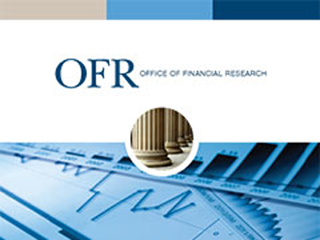|
In case you missed it . . .
|
|
Fed expands financial stability wing
|
|
New division to handle FSOC & FSB duties
|
 
(May 11) The Federal Reserve Board formed a new division, elevating the status of its office that tracks threats to financial stability. The Fed expanded its office focused on financial policy and research into the Division of Financial Stability, a result of its growing task to pinpoint vulnerabilities in the country's financial system.
- The new division will handle Fed's responsibilities as a member of the Financial Stability Oversight Council and Financial Stability Board
- Nellie Liang, the board economist who in 2010 was appointed to run the Office of Financial Stability and Policy Research, will continue to serve as director of the new division
- The change "reflects the growth in responsibilities and staffing associated with the board's commitment to identifying and analyzing risks to financial stability"
|
|
Financial industry vulnerability
|
|
OFR releases paper on mortgage lending
|
 
An Office of Financial Research paper on mortgage lending, "The Real Consequences of Bank Mortgage Lending Standards," describes how mortgage lending standards, as measured by responses to the Federal Reserve's quarterly Senior Loan Officer Opinion Survey, relate to changes in the availability of mortgage loans at banks from 1990 to 2013. The research suggests that the survey's "reported changes in credit standards are a leading indicator of the financial industry's vulnerability to shocks."
|
|
NFA accepting margin models
|
 
The National Futures Association is accepting models that can be used by swap dealers to calculate how much margin they should collect for contracts that are not centrally cleared.
- The rule applies to swap dealers not subject to oversight by a banking regulator. Dealers and major swap participants that do $3 trillion in annual swaps activity with other large entities must comply with the rule beginning Sept. 1. After that, compliance will be phased in through September 2020, when the smallest covered entities will have to begin collecting initial margin.
- The Commodity Futures Trading Commission adopted a rule in December that allows swap dealers and major swap participants to choose between a standardized table for calculating initial margin on uncleared contracts, or using an internally created, risk-based model approved by either the CFTC or NFA. The CFTC's Division of Swap Dealer and Intermediary Oversight is working with the NFA on reviewing and approving models.
- NFA's review process for margin models will involve several steps, including exploratory discussions with submitters, model submissions, reviews and assessments, and finally approval.
|
|
Hand-curated, chosen with love
|
 
Tobacco isn't the only thing cashiers smell behind the counter at Tobacco Road. It's sometimes the customer's money
The Fiduciary Journey: Retirement advice will never be the same
Banking's new normal (Dodd-Frank has basically worked)
The most powerful people in the financial world The only reason we have a retirement crisis today is because, for the first time in history, everyone expects to retire rather than working until they die
|